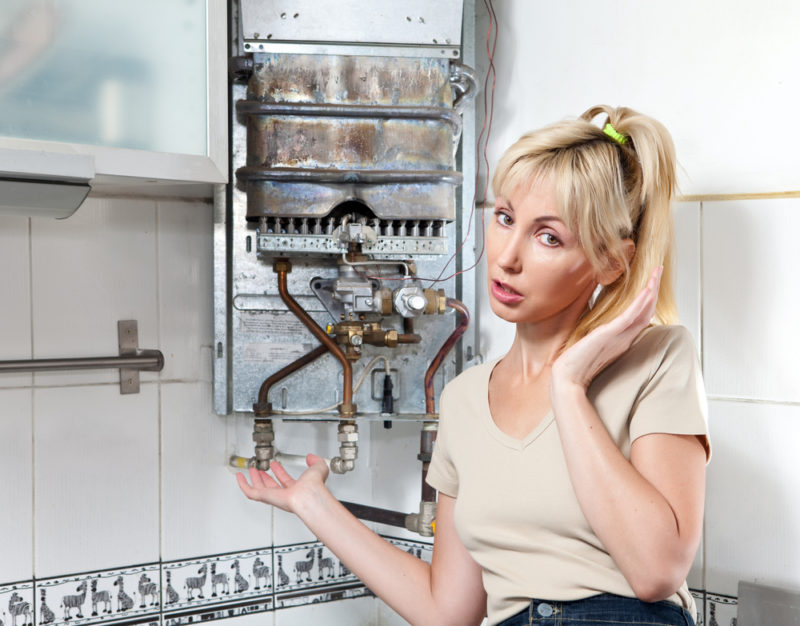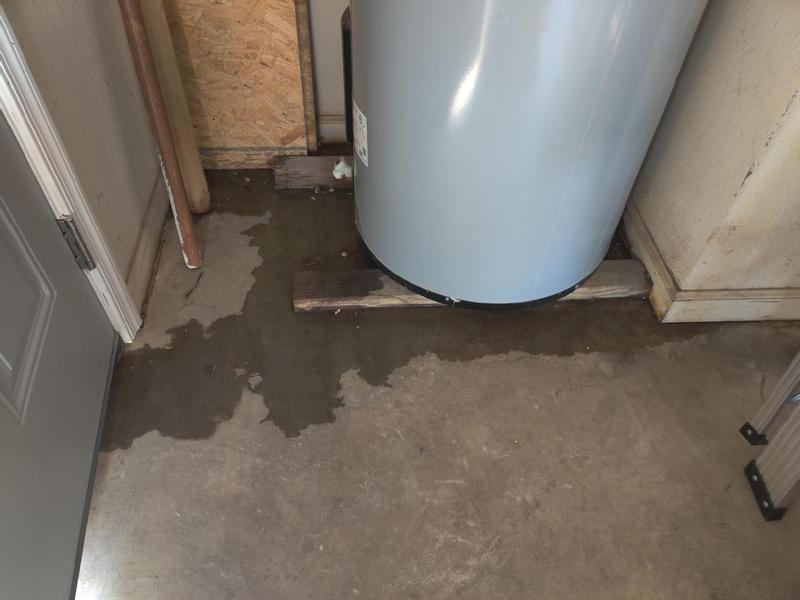Key Steps for House Owners Managing Malfunctioning Heating Units
Key Steps for House Owners Managing Malfunctioning Heating Units
Blog Article
Just how do you actually feel on the subject of Water Heater Repair?

Whether it lies in the cellar or a different area, busted hot water heater can create anxiety. A typical device holds 80 gallons, so an over night leakage will certainly bring about a flooding. This causes major home damage with soaked walls and floorings. Having no warm water supply is also frustrating. If you are handling these issues, take note of the following:
Call the Plumber
After doing the first two safety and security actions, you need to call your plumber to find today to deal with a fractured water heater. Bear in mind that your system will not simply conk out significantly overnight. There are usually indicators that your aging hot water heater has debris buildup in the inside. Bear in mind of the following:
Instead, as quickly as you detect these indicators, have a professional come to check your water heater tank. Generally, water heating units have a lifespan of concerning 8 to 12 years.
Cut Off the Cold Water Supply
Cut off the storage tanks faucet water supply from the resource. This goes from your primary water line into the container. When your tank is in good condition, the cold water quits filling up when the tank is complete. Considering that it is dripping, the water will certainly proceed to move. Shut the shutoff located on top of the heating system. Turn this clockwise to shut it off. You should transform off that major water supply line outside your property if you can not find it or reach it.
Turn Off Power Source
Before calling the plumber, shut off a gas water heater by turning the temperature dial. This is usually located on top of the thermostat. Change off the circuit breaker if you have a design that runs on electric power. This will stop electrocution, particularly if there is a leak as water is a conductor. Usually, the heating element shuts down when the water strikes a specific temperature level. Yet with a damaged tank, it may malfunction. Cutting it off assures you remain safe.
Tidy up Home
After calling the plumber, document damages by making note as well as photos so you can declare your property owner's insurance. From there, start the prompt clean-up. Secure any type of important belongings to avoid additional soaking. Remove any kind of standing water to protect against mold and mildew as well as mold growth. Use that to drain the water if you have a completely submersible water pump. Otherwise, the conventional container approach will certainly also work. Try to mop out every little thing, consisting of wall surfaces and also walls. Keep them running to keep air distributing if you have an electrical follower and also dehumidifier. This will aid deter mold growth.
Keep in mind, if you discover any type of issues with your water heater, call the pros right away. You can not take this problem gently due to the fact that a malfunctioning thermostat can elevate water temperature to a precariously high level, leading to unintentional burns.
After doing the very first two safety steps, you have to call your plumber to come right away to take care of a burst water heater. Instead, as quickly as you find these signs, have actually a specialist come to check your water heating unit container. Before calling the plumber, closed off a gas water heating unit by transforming the temperature dial. If you have a submersible water pump, make use of that to drain the water. Remember, if you see any concerns with your water heating unit, call the pros right away.
Water Heater Repair: Why It Should Be Treated With Urgency
Reasons Why Water Heater Repair Should Be Treated With Urgency
It is a critical part of your home: Your water heater is responsible for supplying your home with hot water, which is a crucial part of everyday life. A malfunctioning water heater can seriously disrupt your daily routine, from showering to doing the dishes. When it breaks down, you’re left with a major inconvenience. Therefore, it’s essential to address any issues as soon as they arise.
It can be costly to repair: A water heater that is not functioning properly can end up costing you a lot of money in repairs. In some cases, it may even be more cost-effective to replace the unit altogether. That’s why it’s essential to catch any problems with your water heater as soon as they arise and address them with a qualified technician.
It can be dangerous: A broken water heater can pose a severe safety hazard to you and your family. If the unit leaks or emits harmful gasses, it could result in sickness or death. Besides, a broken water heater can lead to extensive water damage in your home. It’s important to remember that a malfunctioning water heater should not be taken lightly – it needs to be addressed as soon as possible.
Extend the lifespan of your unit: When you repair your water heater as soon as problems arise, you’re not only ensuring that your home is safe and comfortable, but you’re also extending the life of your unit. This is because the more you wait to address problems, the worse they’re likely to get. By taking care of issues as soon as they arise, you’re preventing them from snowballing into a bigger problem down the road.
Signs You Need Water Heater Repair
Now that you know why water heater repair should be a priority, it’s essential to know when you have issues with your unit. Here are some common signs that you may need to call in a professional:
Rust or sediment in your water: If you notice rust or sediment in your water, it’s a sign that something is wrong with your water heater. This could be a sign of corrosion or scale build-up, both of which need to be addressed by a professional technician.
No hot water: This is probably the most obvious sign that something is wrong with your water heater. If you’re not getting any hot water, there is likely a problem with the heating element or the thermostat.
Water leaking from your water heater: If you notice water leaking from your water heater, it’s time to call in a professional. This could be a sign of a severe problem, such as a leaky tank or corroded plumbing.
Noise coming from your water heater: If you hear banging, hissing, or whistling coming from your water heater, it’s a sign that something is wrong. This could be a sign of sediment build-up, a corroded tank, or a clogged burner.
The water is not hot enough: If the water coming out of your taps is not hot enough or if it’s taking longer than usual to get hot, you need water heater repair. This could result from low water pressure, a clogged burner, or an issue with the thermostat.
It’s been more than a decade since the last repair: If it’s been more than a decade since your water heater was last repaired, it’s probably time for a tune-up. Often, minor problems can turn into bigger issues if they’re not addressed promptly.
If you’re experiencing any of these signs, it’s time to call in a professional and get yours repaired. Don’t wait until the problem gets worse – address it as soon as possible to avoid additional hassle and expense.

Hopefully you liked our article about Water Heater Repair. Thank you so much for finding the time to read through our piece of content. Don't hesitate to take the opportunity to promote this blog entry if you enjoyed it. We enjoy reading our article about How to Avoid a Broken Hot Water Heater.
Immediate response? Click here. Report this page